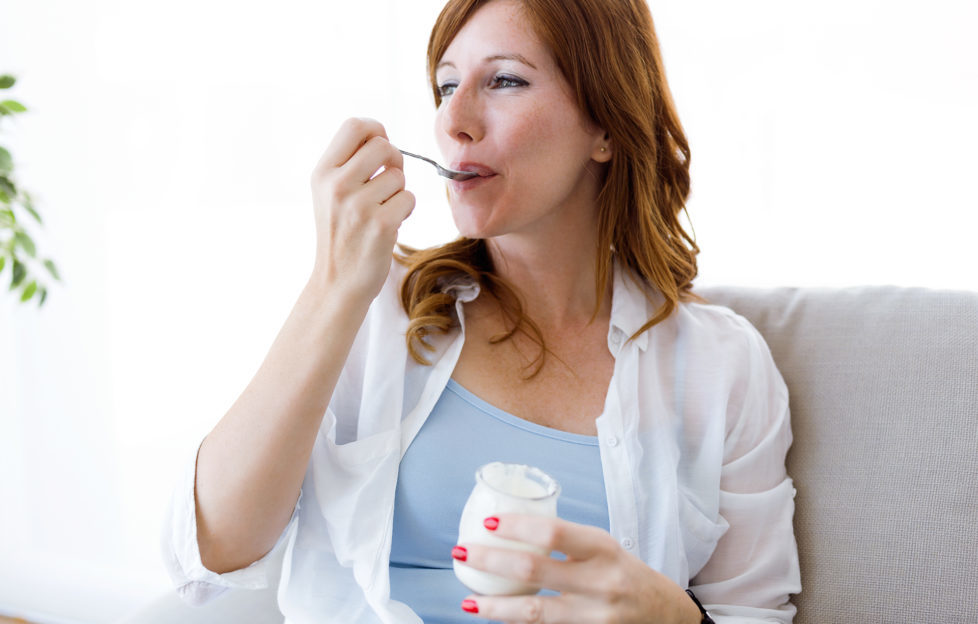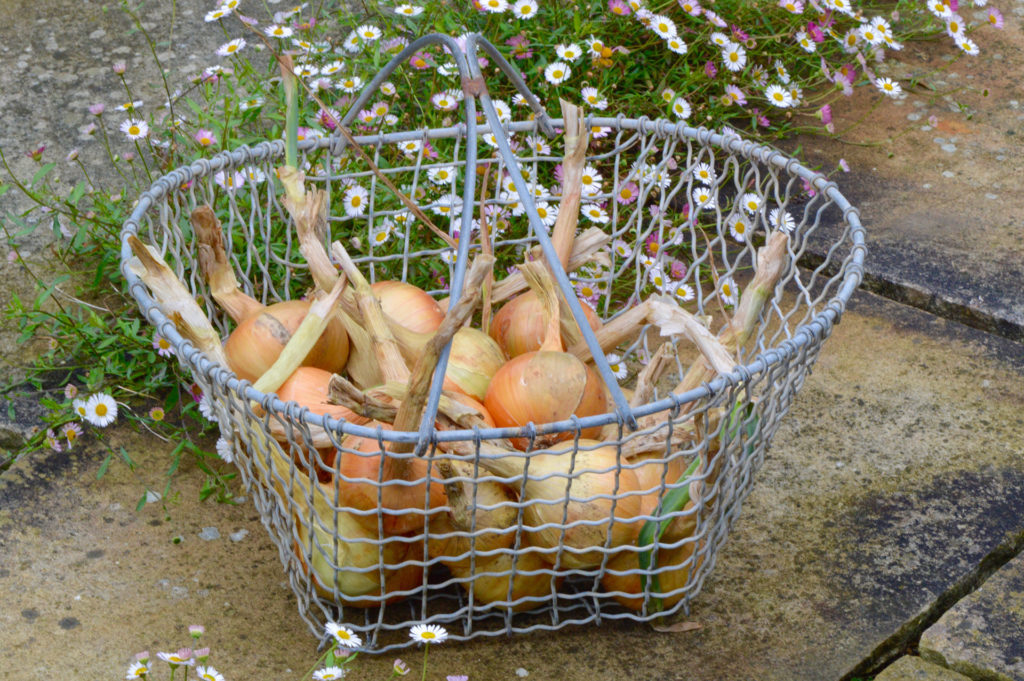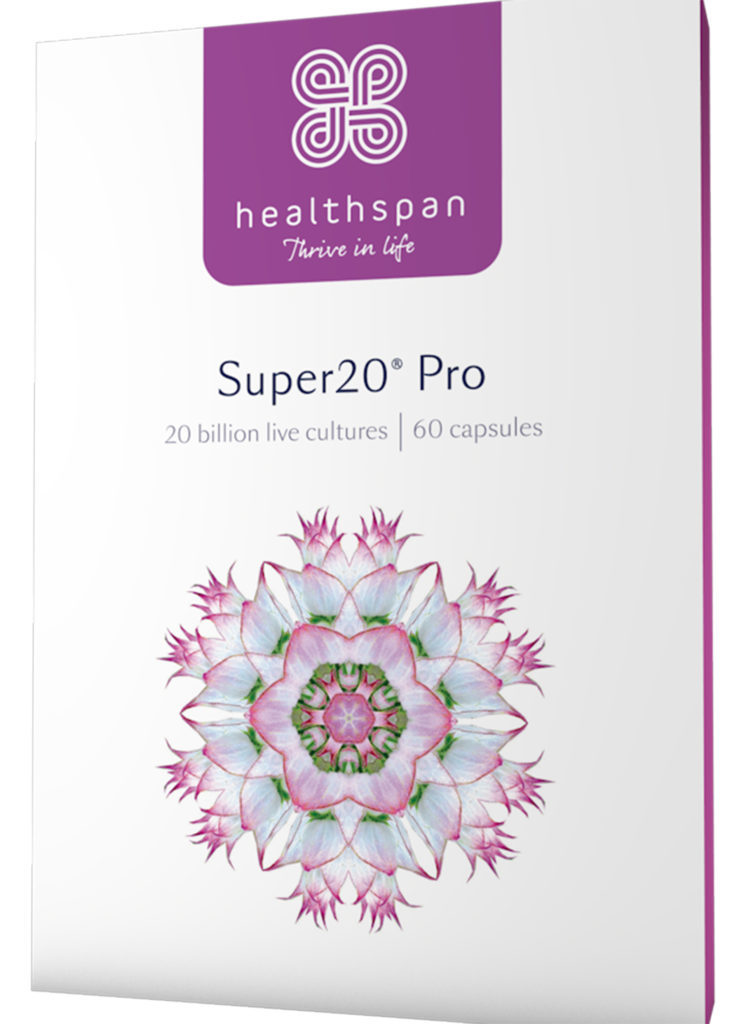5 Ways To Protect Your Gut Health

Research has shown the many important roles gut bacteria plays in maintaining our health. Registered Nutritionist, Rob Hobson, Healthspan Head of Nutrition shares his top five ways to help protect the diversity of bacteria in your gut that contribute to the health of your microbiome.
The term ‘microbiome’ refers to the collection of microbes that live in and on our body of which there are around 100 trillion and most of these are found in the gut. An army of microbes, including bacteria, colonise the body even before birth, forming a protective barrier that defends against foreign invaders harmful to our health.
Your microbiome is unique to you
The microbiome is an integral part of an efficient digestive system. Bacteria in the gut help to digest and utilise antioxidant polyphenols that have been shown to protect the body against disease. These bacteria also synthesise vitamins such as B12, D, folic acid and thiamine. Your microbiome is like a fingerprint and is unique to you, reacting to the world around you and within you, which dictates its composition.
How can diet and lifestyle factors impact on the health of your microbiome?
There are many diet and lifestyle factors that can impact on the diversity of bacteria in your microbiome. Some of these can upset the balance and encourage the growth of bad bacteria whilst others are non-discriminatory and wipe them out regardless of whether good or bad.
An unhealthy diet rich in sugar and ‘bad’ fats can cause weight gain and inflammation that impacts on disease risk. It has been suggested that this type of diet can encourage the growth of bad bacteria in the gut, but another reason may be more straightforward. If your diet is rich in unhealthy foods, then the likelihood is that you’re not eating enough of the foods that support good bacteria in the gut such as vegetables, wholegrains and other high-fibre foods.
Other factors such as those related to mental health and medication can also have a huge influence on the balance of bacteria in your gut. These are five of the way in which you can help to protect your microbiome by addressing some of the more common diet and lifestyle factors.
1 Address your stress
Psychosocial factors such as stress or depression can influence the actual physiology of the gut, affecting movement and contractions of the GI tract, increasing inflammation and even making you more perceptible to infection.
The relationship between the gut and brain is referred to as the gut-brain axis. Research in this field is in its early stages but is beginning to suggest that your microbiome may be affected by conditions that linked by the gut-brain axis. In the case of stress, the effects have been shown to cause changes to the microbiome and these effects also appear to be amplified when stress is more severe or prolonged.
Don’t dismiss the effects of stress on the body. Mental health is just as important for your body as the food you eat, exercise you take and sleep you get. Try exploring techniques that can help you to manage stressful situations. Meditation has been proven to help with stress and there are many apps available that make it easy to get to grips with. Breathing techniques have also been shown to help.
2 Eat prebiotic foods in your diet
Some foods contain specific fibres that we are unable to digest. These fibres are referred to as probiotics and act as a food source for gut bacteria, helping it to flourish. Gut bacteria break these fibres down by a process called fermentation, which produces short chain fatty acids that supply energy to the cells that line your colon.
The different types are probiotic foods include:
- Onions, garlic, leeks, asparagus and bananas contain inulin and fructooligosaccharides that act as prebiotics.
- Oats and barley contain beta-glucans that act as prebiotics.
- Starchy foods such as pasta, rice and potatoes form resistant starches (resistant to digestive enzymes) once they’ve been cooked and then cooled. Resistant starches act as prebiotic
3 Watch your medication
Certain medications can upset the balance of gut bacteria. Aspirin and ibuprofen are commonly used Nonsteroidal Anti-inflammatory Drugs (NSAIDS), but their use has been shown to reduce levels of good bacteria in the gut. Antibiotics are also not a friend of gut bacteria as they can wipe out swathes of both good and bad. The use of these medications is unavoidable for some people that require them for the treatment of inflammatory health conditions, but it’s important to question the need for antibiotics. In certain cases, such as severe bacterial infections, they’re required to help the body recover, but they’re of no use in fighting viral infections such as colds or flu. Using probiotics alongside certain medications or after a course of antibiotics can help to re-balance your microbiome.
Another interesting issue surrounding antibiotics is their extensive use in the farming of food animals. The issue is a topic of debate but eating less meat and choosing better quality meat may not only be better for your health but reduce the transmission of antibiotics through the food chain.
4 Eat probiotic foods
Probiotics are bacteria that have been shown to have a positive health benefit. Well researched strains include those from the Lactobacillus and Bifidobacterium family. Live yoghurt is the most well-known probiotic food and contains strains such as Lactobacillus Acidophilus and Lactobacillus Casei. Similar strains are also found in yoghurt ‘shot’ drinks that have become very popular. A healthier choice of yoghurt is one that contains no sugar, and these are widely available.
Fermented foods such as kimchi, kefir and miso also contain strains of bacteria that can support good gut health. The popularity of these foods has led them into the mainstream and they’re now widely available in most supermarkets.
5 Take a probiotic supplement
Probiotic supplements offer a way of delivering large doses of specific bacteria to the gut. Stick to preparations that contain well researched strains such as Lactobacillus and Bifidobacterium in a dose of at least 10 billion bacteria per serving such as Healthspan Super20 Pro (£18.99 for 60 capsules). Avoid taking probiotics with hot food and drinks or alcohol that can destroy them in transit.
Probiotics are an exciting area of research and whilst their use and efficacy has recently come under scrutiny, there’s still plenty of good quality research that points towards their beneficial role in health. Two particular areas where the evidence is particularly convincing is around digestion and immunity.







